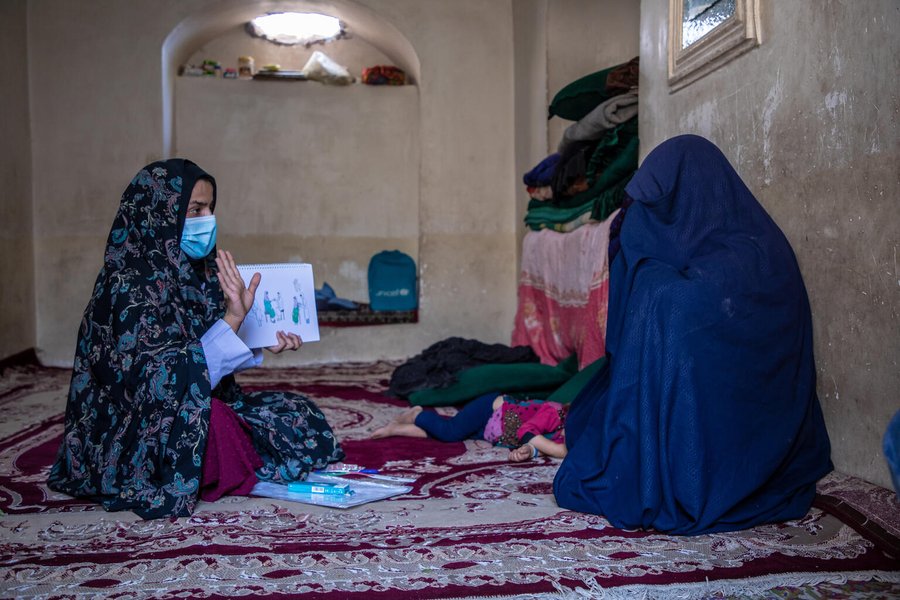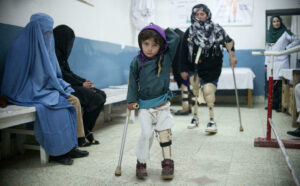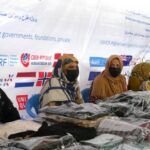Author: Mahdi Mozaffari
It has been three years since the current regime in Afghanistan abruptly and unjustly issued a decree banning the education of girls above the sixth grade across the country. This decision has not only seriously impacted and ruined the future of millions of Afghan girls, but it has also become one of the largest humanitarian crises in the world. With each passing day, more Afghan girls are deprived of their fundamental right to education. This prohibition has turned the dreams and hopes of a generation of girls to ashes, preventing them from the opportunity for growth and flourishing.
According to the latest statistics published by the United Nations Children’s Fund (UNICEF), this year alone, 38,000 more girls have joined the ranks of those unable to continue their education due to this ban. This alarming statistic highlights the depth of the catastrophe that has befallen Afghan girls. This prohibition harms not only individual girls but the entire society of Afghanistan; depriving half of the population from education means denying the whole society access to skilled and specialized labor. Countries that deny their women and girls the right to education will face long-term economic, social, and even cultural crises.
Why Doesn’t the Interim Government Lift the Ban on Girls’ Education?
Since the current regime took control of Afghanistan and imposed the ban on girls’ education beyond the sixth grade, this government has steadfastly maintained its decision despite internal and international pressures. The authorities have yet to provide a clear and convincing reason for this decision and have not responded to widespread criticism from human rights activists, civil society, and even some religious leaders. This significant silence and the government’s repressive approach toward educational activists have fueled speculation about the true motives of the interim government.
Government officials have put forth various justifications for this ban, each of which has proven to be weak and unfounded. Initially, the lack of a “suitable environment” for separate girls’ education was cited as an excuse, which quickly contradicted the educational realities of Afghanistan prior to this regime’s takeover. Then, the current rulers claimed that cultural reasons led people to oppose girls’ education beyond the sixth grade. However, this assertion was met with strong backlash from community leaders and civil activists who emphasized the people’s desire for their daughters’ education.
With these justifications failing, the regime turned to a repressive approach, detaining and imprisoning educational activists. The arrests of activists like Ahmad Fahim Azimi and Matiullah Waisa illustrate that the government is not only unwilling to provide a logical justification for this ban but also fears any form of dissent and criticism. Furthermore, the insistence on this unjust and inhumane decision to prohibit girls’ education stems from regressive and narrow-minded ideologies that not only contradict human values but also conflict with authentic Islamic teachings.
Depriving girls of their right to education means denying them the tools for growth, advancement, and independence. This repressive approach not only harms the fundamental rights of Afghan citizens, particularly women and girls, but also poses a serious threat to the future of the country. The international community and global institutions must increase their pressure on this government to lift such oppressive bans and defend the basic rights of the people of Afghanistan.

Devastating Consequences
The policies of the caretaker government in Afghanistan have had severe and destructive repercussions on the lives of women and girls in the country. These consequences affect not only individual and social dimensions but also economic aspects and even the mental health of Afghan women and girls. According to Sima Bahous, Executive Director of UN Women, 90% of Afghan women and girls describe their mental health as “poor” or “very poor.” This statistic alone highlights the depth of the tragedy imposed on this segment of society. Afghan women acknowledge that over time and with changing seasons, their psychological state is increasingly deteriorating, with many resorting to suicidal actions.
Severe restrictions on education are one of the most significant consequences of these policies. The United Nations Educational, Scientific and Cultural Organization (UNESCO) has warned that as a result of these policies, half of Afghanistan’s population will remain illiterate. Illiteracy poses a serious barrier to full participation in society and leads to widespread unemployment, poverty, and health and psychological issues. Meanwhile, UNESCO emphasizes that reading and writing is the first message from God in the Holy Quran.
Nevertheless, the current rulers of Afghanistan continue to insist on banning education for girls, creating an uncertain future for the next generations of this country. A generation of illiterate women will give rise to a generation of illiterate mothers who, in turn, will deprive their children of the right to education. This vicious cycle will entrench illiteracy in Afghan society for decades and across several generations. The repercussions of this situation extend beyond individuals and families, impacting the entire Afghan community. The decline in literacy levels will pose a significant obstacle to the development and progress of Afghanistan, trapping the country in poverty and backwardness.













